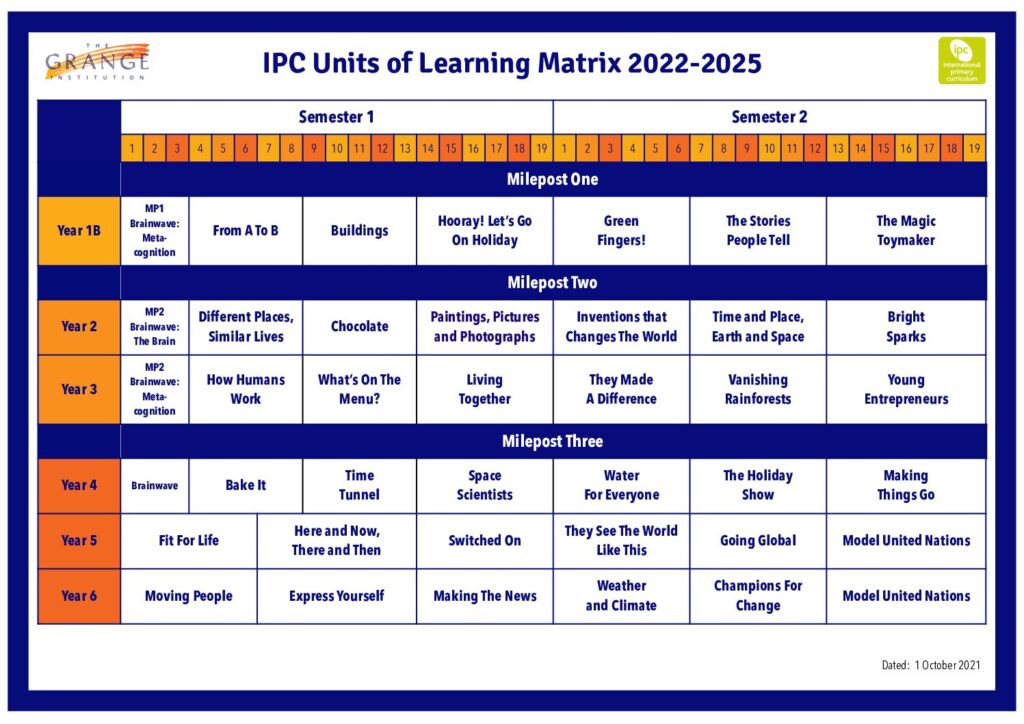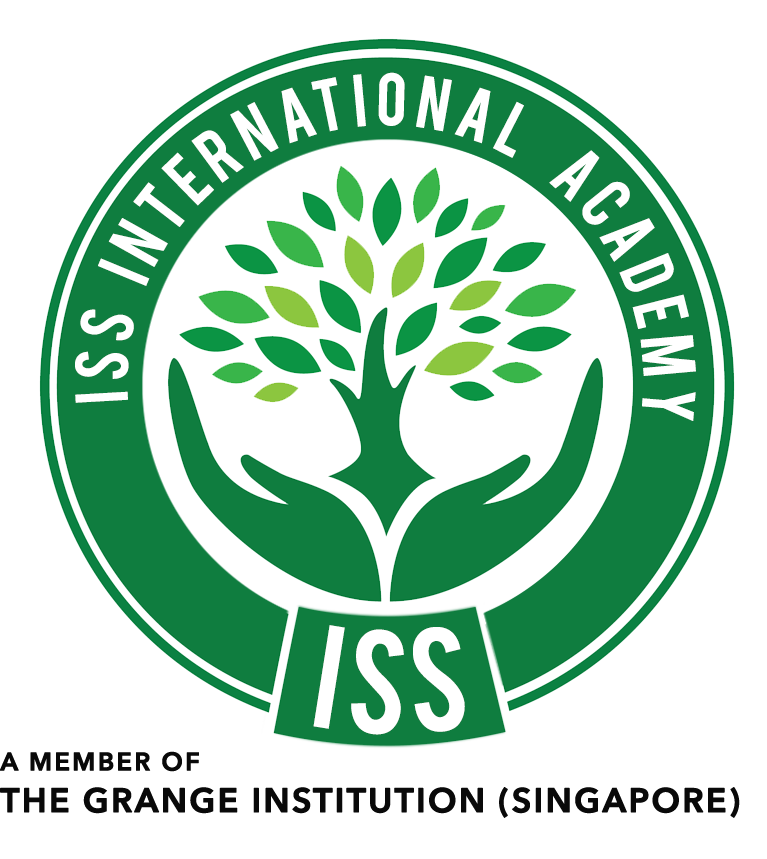CONTACT US
- No.52 street 440, Toul Tom Poung 1, Khan Charmkamorn, Phnom Penh, Cambodia
- 097-898-9559 or 077-666-700
- enquiry@issphnompenh.edu.kh
Copyright © 2023 ISS International Academy. All rights reserved.
Copyright © 2023 ISS International Academy. All rights reserved.
Technology is very much a part of all of daily routines. Hence, at The Grange, we seek to ensure that students continue to gain meaningful access to technology to enhance the development of important 21st century self-management, collaboration, thinking, research and communication skills. Our digital citizenship curriculum is designed to empower students to learn how to think critically and ethically in their use of technology in their learning; to respect cyber safety and understand how to minimise risks for themselves and others; to identify what information is important online, and to use technology as a tool to showcase their skills and talents. Learning experiences are made richer by the appropriate use of technology and these skills are directly transferable to all aspects of learning at the school. Digital literacy has evolved beyond the basic computing skills and require our students to develop to know how to access, analyse, create and share information with target audiences using different tools and platforms. At The Grange, we have introduced a Coding curriculum using Scratch developed by MIT. This initiative aligns with our Cre8tors-in-Action educational philosophy where we believe this is an invaluable skill that the students can take into the future workplace.
The Grange Institution therefore requires that teachers:
We aim to provide a language-rich environment where opportunities are provided for students to develop their full potential in English, as well as an additional language.
ISS International Academy is committed to:
Specifically, at ISS
Assessment is a tool to support and promote student learning and to accurately report student achievement. We believe that students and parents are entitled to consistent, valid and reliable assessment information across all year levels and subjects.
ISS International Academy therefore requires that teachers:
Over time, the school will:
At The Grange we value students’ language development. Every student can choose one of the following languages options, in addition to the Cambridge Primary English lessons:
At The Grange, we believe that technology is an integral tool that supports learning in the classroom. We hope to develop students’ digital literacy and to become skilful at using technology for communication – to access information, collect and record information, analyse data to synthesise information, and then to present information, thinking about the purpose and the audience – and for Coding. Internet safety and cyber etiquette are also important knowledge and skills we want to impart to students.
The Music curriculum is organised around the learning strands of Music Theory, Appreciation, and Performance. Where authentic opportunities arise, our Music curriculum makes interdisciplinary links with the IPC Units of Learning. We hope to inspire students to see music as an important common language through which humans communicate our emotions, ideas, identity, rituals and culture. Through our music education, we hope our students will see more similarities between people instead of differences. The Music curriculum provides an excellent platform for the students to develop their 8 IPC Personal Learning Goals and important 21st century skills.
Art at The Grange develops students’ appreciation and understanding that Art is a powerful mode of communication through which students explore and construct a sense of self and develop an understanding of the world around them. Art provides students with a range of opportunities and means to respond to their experiences and engage with historical, social and cultural perspectives. The students are stimulated to think and to articulate their thoughts in new ways and through a variety of media and technologies. Art develops the whole child, promotes creativity, critical problem-solving skills and social interaction. The curriculum is organised around the learning strands of Art Techniques, Appreciation, and Expression. Where authentic opportunities arise, our Art curriculum makes interdisciplinary links with the IPC Units of Learning. The curriculum provides an excellent platform for the students to develop the 8 IPC Personal Learning Goals and important 21st century skills.
The Personal, Social, Physical Education (PSPE) curriculum at The Grange covers a variety of topics related to personal development, social growth and physical activities. The curriculum is organised around these strands of learning: Self-Awareness, Social Interaction and Active Living. Where authentic opportunities arise, our PSPE curriculum makes interdisciplinary links with the IPC Units of Learning. The PSPE curriculum provides an excellent platform for the students to develop the 8 IPC Personal Learning Goals and important 21st century skills.
The IPC is unique in defining learning goals that help young students begin the move towards an increasingly sophisticated national, international, global and intercultural perspective. Each IPC unit has embedded within it, learning-focused activities that help students gain an increasing sense of themselves, their community and the world around them, whilst developing the capacity to take action and to make a difference.
The personal goals refer to those individual qualities and dispositions we believe students will find essential in the 21st century. There are eight IPC personal goals: Adaptability, Communication, Cooperation, Enquiry, Morality, Resilience, Respect and Thoughtfulness. Opportunities to experience and practice these very specific dispositions are built into the learning tasks within each unit of work. In addition, we aim to help students.
The subject goals cover the knowledge, skills and understanding that students should learn in Science, History, Geography, ICT and Computing, Technology, Music, Art, PE, Society, International, Language and Mathematics. These subjects are built into the different thematic units of work, where they work independently yet interdependently with each other so that children can talk about their learning through multiple perspectives.

The Cambridge Primary Science Curriculum is presented in four content areas: Scientific enquiry, Biology, Chemistry and Physics. Scientific enquiry is about considering ideas, evaluating evidence, planning investigative work and recording and analysing data. The Scientific enquiry objectives underpin Biology, Chemistry and Physics, which are focused on developing confidence and interest in scientific knowledge. Environmental awareness and some history of science are also incorporated.
The Cambridge Primary Mathematics Curriculum is presented in five content areas: Number, Geometry, Measure, Handling Data and Problem Solving. The first four content areas are all underpinned by Problem Solving, which describes using techniques and skills and the application of understanding and strategies in solving problems. Mental strategies are also a key part of the Number content. This curriculum focuses on principles, patterns, systems, functions and relationships so that learners can apply their mathematical knowledge and develop a holistic understanding of the subject.
The Cambridge Primary English Curriculum Framework promotes an enquiry-based approach to learning to develop learners’ confidence, creativity and intellectual engagement. The framework covers knowledge, skills and understanding in the three strands, Reading, Writing, and Speaking and Listening.
